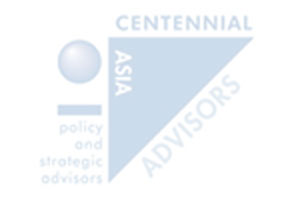- March 9, 2020
- Posted by: admin
- Category: Centennial Asia Insights
No Comments

Highlights from the CAA Weekly Table
What has changed?
3 big changes: oil price collapse; virus hits global economy more severely; rising political risks.
- Asian economies face these risks with different levels of resilience: The Chinese economy re-activates but stressed SMEs make for a slow return to normalcy. The trade-reliant Singapore economy is more vulnerable but has sufficient policy space to counteract the worst of the crisis. More stimulus measures have been announced in Thailand, but their effectiveness is blunted given sapped confidence and reduced policy capacity. Both monetary and fiscal tools were deployed in Indonesia to contain the fallout from the Covid-19 virus, but their efficacy remains questionable. The Philippine economy is relatively resilient but growth will nevertheless be tested as electronic exports to China take a hit.
- Asian political risks: Taiwan risks an even harsher pushback by China as even the once pro-China Kuomintang opposition party adopts a position on reunification that will anger Beijing. Delays to the formation of the new cabinet in Malaysia point to intense tussling for ministerial portfolios; the new coalition’s shaky start raises risk of greater instability.
How well-positioned are Asian economies to absorb these multiple shocks?
- Key components of demand have weakened across the region. External demand has flagged everywhere; consumption is depressed and weakening – worsened by an outsized slump in tourist arrivals; but investment is a mixed bag with countries such as Taiwan & Singapore helped by strong inward investment.
- On the upside, internal and external stability conditions remain benign, which reduces the chances that the external shocks from the global economy might be amplified – while also creating policy space for countercyclical stimulus.
- Policy response, especially how quickly fiscal spending can be disbursed will be key to the near-term growth outlook, but this continues to be a challenge for Thailand and Indonesia.
How will the oil price collapse impact Asian economies?
- The Saudi-Russian standoff will keep prices low for several months – both are determined to diminish the US shale industry while Russia is bolstered by huge fiscal savings which will enable it to face down the Saudis. Oil prices are likely to stay on an extended bearish run.
- As a net oil importing region, the implications for Asia are mostly positive; the falling cost of crude can be thought of as an ‘automatic stabiliser’ amid the current step-down in growth, helping to support growth whilst keeping a lid on inflation and buttressing the region’s external and fiscal accounts.
The Philippines: Duterte’s tirades against oligarchs will spook investors
- The President has decided to pivot away from his War on Drugs to burnishing his credentials as a “Man of the People” leader with tirades against “oligarchs”, the landed families which have long dominated the country.
- While the President’s rhetoric has won him favour among the electorate, due in large part to the highly unequal Philippine economy and society, the attacks will also dampen the investment and business climate, at a delicate time when the economy is in dire need of foreign funds to finance its flagship infrastructure drive.
The CAA Weekly is currently available only for our subscribers. Please email contact@centennialasia.com for subscription enquiries.
9-Mar-2020
